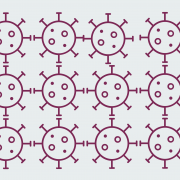The importance of diversity in genomic datasets
We look at a recent prostate cancer study that highlights the importance of inclusivity in genomic studies
Genomics can play a key role in the development of prostate cancer, and people from certain demographics are more likely to have a genetic predisposition to the condition than others. Historically, studies have focused predominantly on white male populations – but now things are changing.
A recent study – the most diverse of its kind – has found 86 genomic variants with a link to prostate cancer, showing the value in using wider datasets when undertaking genomic research.
Forms of prostate cancer
Prostate cancer is one of the most common cancers in the UK, accounting for 14% of cancer deaths in men. However, not all prostate cancers are alike.
Many prostate tumours are slow growing and can take decades before treatment is necessary. As prostate cancer mostly affects older men, these cases do not usually develop to the point where they would cause symptoms or shorten life expectancy. Other prostate cancers can be very aggressive, with early detection and treatment making a critical difference to outcomes.
Current tests: the limitations
The standard test for prostate cancer is a PSA test, which looks at levels of prostate-specific antigen (PSA) in the blood. Raised PSA levels are associated with prostate cancer, but the test is far from perfect.
Around 15% of men with prostate cancer will not have raised PSA levels, and so the test will return a false negative in these cases. In addition, not all men with raised PSA levels have cancer, and, of those who do, many have slow-growing tumours that do not require treatment.
Routine PSA screening is therefore controversial, as it can lead to the unnecessary diagnosis and ‘overtreatment’ of cancers that do not require intervention.
PSA testing can be used in combination with physical exams, and scans and biopsies where necessary, to reach a diagnosis. But how can genomics be used to improve outcomes further?
Genomics’ role
We know that genomics plays a part in the development of prostate cancer: men whose fathers or brothers have been diagnosed have a slightly increased chance of developing it themselves.
Prostate cancer is also known to occur in differing frequencies across populations, being more prevalent in men of African ancestry, and less prevalent in men of Asian ancestry, than in men of European descent.
Previous large-scale studies looking for genomic variants associated with prostate cancer have been conducted mostly on men of European ancestry, but scientists are now acknowledging the importance of diversity in data by widening their research to include a broader range of people.
Diverse data, new findings
Scientists from London’s Institute of Cancer Research (ICR) and the University of Southern California (USC) came together to conduct a prostate cancer study with a genomic dataset unparalleled in its diversity. The study analysed the genomes of 200,000 men from the US, UK, Japan, Sweden and Ghana.
Their findings, published in Nature Genetics, include the discovery of 86 new genetic variants associated with prostate cancer risk, bringing the number of known variants to 269. Although each discovered variant has a small effect on risk when taken individually, when considered cumulatively they can make a substantial difference.
Better care for all
Using these findings, the team was able to compile a polygenic risk score that better represents a range of ethnicities. On average, men of African ancestry were the most predisposed to prostate cancer – with a score twice as high as men of European descent. Asian men were the least at risk – with a score around 25% lower than men of European descent.
“We have known for some time that the incidence of prostate cancer is higher among black men, but what this study does is uncover a key underlying cause of that disparity, so that we can design new screening and treatment strategies to address it,” said Professor Paul Workman, the ICR’s chief executive. “I hope this research can play an important role in reducing health inequalities among men with prostate cancer, by allowing black men and others at high genetic risk to be identified and treated earlier.”
Read more about how genomic datasets are being diversified in the UK as part of the National Genomic Healthcare Strategy.
–









